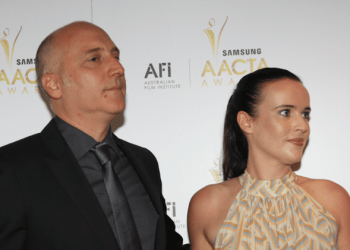In a tech founder’s usual playbook, ownership tends to decrease over time. But Asana’s CEO and facebook cofounder, billionaire Dustin Moskovitz, is flipping the script.
Instead of reducing his stake, he’s steadily acquiring more Asana shares, now making him the majority owner with over 51% of outstanding stock. His motivation isn’t control, but a strategy to invest in philanthropy.
Moskovitz, recognized for his early involvement with Facebook, founded Asana in 2008 to improve collaboration through software. By 2020, when he took the company public, he held a 36% ownership stake. However, he’s been on a buying spree, including a recent purchase of 480,000 Asana shares in June.
Despite Asana’s stock rallying 66% this year, it remains over 80% below its late 2021 peak. Nevertheless, Moskovitz, with a net worth exceeding $12 billion, is committed to using his wealth to support philanthropy, particularly in the realm of artificial intelligence (AI).
In 2010, Moskovitz pledged the Giving Pledge, promising to donate most of his fortune to charity. He and his wife, Cari Tuna, manage their philanthropic efforts through Good Ventures, with a strong focus on AI safety. Good Ventures contributed $30 million to startup OpenAI in 2017, highlighting the importance of AI safety and governance.
One of Moskovitz’s major concerns in philanthropy is “potential risks from advanced AI.” Open Philanthropy, linked to OpenAI, has distributed over $300 million through more than 170 grants to support research in this area.
Moskovitz’s involvement with AI extends beyond philanthropy; he’s actively engaged with AI technologies. OpenAI’s ChatGPT, launched in November, captured his attention. Before its release, Moskovitz experimented with DALL-E, another technology from OpenAI.
Asana, too, has embraced AI, enhancing its products with generative AI features powered by OpenAI models. Moskovitz sees AI as not just a chatbot technology, but a way to optimize workflows and decision-making processes.
In terms of financial commitment, Moskovitz has indicated that Asana could allocate over $5 million for OpenAI’s technology in the coming year, expressing admiration for OpenAI’s GPT-3 and GPT-4 models.
Moskovitz’s deep involvement in AI and philanthropy is noteworthy. He’s also contributed to discussions on AI safety and policy, advocating for safety evaluations of advanced AI models before their release.
While Moskovitz shares Elon Musk‘s views on AI’s existential risks, they differ on other aspects like AI censorship and societal concerns. Moskovitz is actively engaged in shaping AI policy and fostering a responsible AI ecosystem.
In summary, Dustin Moskovitz’s journey from co-founding Facebook to becoming the majority owner of Asana reflects his commitment to philanthropy, particularly in AI safety. His strategic investments in Asana and active involvement in AI technologies underscore his dedication to shaping the future of AI in a safe and responsible manner.

















